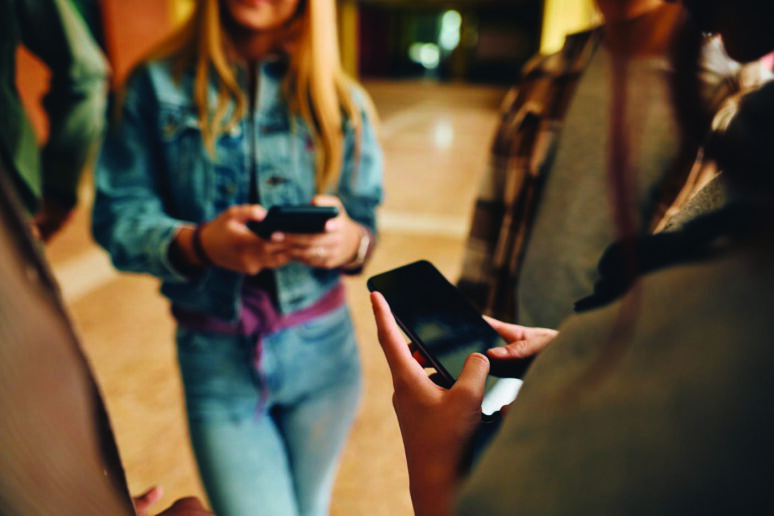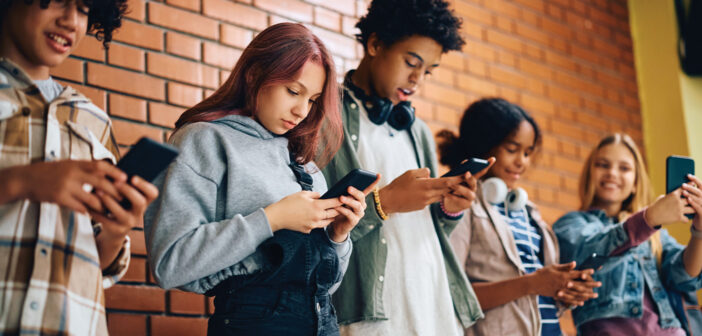Screens are everywhere. In every pocket and every hand. On nearly every one of those screens is a Feed with a constant flow of information in real time – what our friends are doing and where, what our favorite celebrities and talking heads have to say. We can see the newest fads, styles, cartoons and jokes. The whole world is constantly at our fingertips and through social media platforms such as TikTok, Instagram, Facebook, Snapchat, YouTube and many others, each of us are free to compare our lives to those of “influencers” and express our thoughts to an audience of billions. It’s a phenomenon that is here to stay in today’s current forms and future variations of them. There’s no question about it: social media has had a profound impact on the world. What we are now beginning to understand is how it affects our inner world – and the result is less than glowing.
At the time of this writing, Facebook and Instagram each have nearly two billion active users. With almost eight billion people on Earth, those two social media platforms individually are viewed by nearly a quarter of the population of the entire planet. TikTok reports over one billion active users at any time. With so many people logged on, social media truly affects the entire world and what it is doing to who we are and how we view ourselves is becoming the subject of much research.
Social media’s effect on who we are and how we view ourselves is becoming the subject of much research.
Studies have found that constant social media attention is associated with heightened levels of anxiety, depression and related physical ailments for all of us. In addition, increased use is tied to poorer sleep quality, memory loss and poor academic performance. For teens, the negative effects are more enhanced. The earlier teens start engaging with social media, the greater impact the numerous platforms have on their mental health, especially females. Social media – through filters, manipulated images, staged posts, misinformation, etc. – presents a distorted view of personal appearance, acceptable behavior and our real social world. As teens and adolescents go through puberty, they are tasked with establishing their identities and a distorted reality can alter who they will become. As their brains’ frontal lobes continue to develop, a lack of impulse control can cause them more harm in the future when they make detrimental posts on social media sites that, at the time, they thought were “fun.”
Through social media, teens today are more often bombarded by harmful interactions with others due to both a lack of accountability and declining in-person communication which is correlated with decreased empathy. As teens get older and become adults, they are increasingly unhappy with their non-filtered life – so much so that plastic surgeons are seeing an uptick in requests from people wanting to be made to look like their “filtered” selves. Other problems presented by the rise in social media overuse are the need for instant gratification (loss of patience), disinterest in community involvement, and increased loneliness.
For teens who have spent much of their early lives on a screen, social media can be a tough habit to break. Using it activates the brain’s reward center by releasing dopamine, and developers happily exploit this effect for financial gain. They design the platforms to become addictive to users through “likes”, “shares” and carefully cultivated information streams tailored to each individual’s preferences. Its unpredictability of posts and audience engagement keeps us coming back for more. We want to see what’s new, what people think about our post, what everyone is up to. Fear of missing out (FOMO) is a real phenomenon – so much so that we would rather look at our phone when it dings then engage with our family members, the movie we sat down to watch, or the friend sitting right across from us. It’s an addiction that can become a lifestyle and, like nearly everything else in this world, needs to be experienced in moderation to avoid a negative impact on our lives.

Breaking Through
Today’s parents may not understand the hold social media can have on their kids. The majority of parents grew up in a time when social media didn’t exist and the internet was in its infancy. For teens today, most of their social life is spent in a digital world. It’s nearly all they know and weaning them from their apps and streams requires patience and understanding.
Here are a few tips:
1. Delay, Delay, Delay. If your teen or tween is simply begging for a smartphone or tablet, put it off as long as possible. Instead, let them use your phone for calls to friends or texting. If you are afraid that they will not have a phone when they need one, get them a flip phone or “dumb” phone that looks like a smartphone but can only do communication. Parental blocks or disabling apps on their smartphone doesn’t work as well as you would like to think; kids will always find a way around it. They are typically better at working the phone than you are.
2. The Internet is Forever. This lesson cannot be stressed enough to your teen. They have to understand that once they post something, it will be visible to someone browsing the internet forever. That photo they posted of their backside as a joke will be seen by a potential employer one day. The insulting comment they directed at a classmate when they were 13 may get them fired as an adult. That obscene post that they “liked” can get them thrown out of office.
3. Walk the Walk. If you do not allow your children to have their phone at the dinner table, at church, or during family night, then it is off limits for you, too. “Do as I say, not as I do” creates resentment and rebellion.
4. Institute a “No Selfie” Rule. If your teen wants to take photos during vacations, when they’re with friends and at events, etc. to post on social media, allow them to do so. Just ask that they not be in the picture. Taking themselves out of every photo-op allows them to appreciate the moment. They are less likely to be self-absorbed or worried about their appearance, safer from internet predators and more apt to live in the world as it is instead of believing they are at its center.
5. Limit Their Time. They are going to dislike you for this one, but the end result is what matters. Allow them some time to browse and communicate with friends on social media but keep a handle on it.
Phones should not be allowed after it is time for bed or during family meetings or meals. If they are complaining because they are bored, perhaps it’s time to help them find a new hobby. Find a way to get them outdoors and socialize in the real world.

Cutting a teen off completely from their social scene is not the answer. Instead, they should be taught to engage with it in moderation. After all, social media is not all bad. It has helped us communicate with and find friends, family members and niche communities. It has helped us find and support worthwhile causes and been a boon to creativity. The downside is overuse and addiction to it. There is a world beyond the screen and teaching your child to engage with that world will help them view themselves more positively, foster their self-confidence and enhance their ability to cope with reality: the world without a filter.














